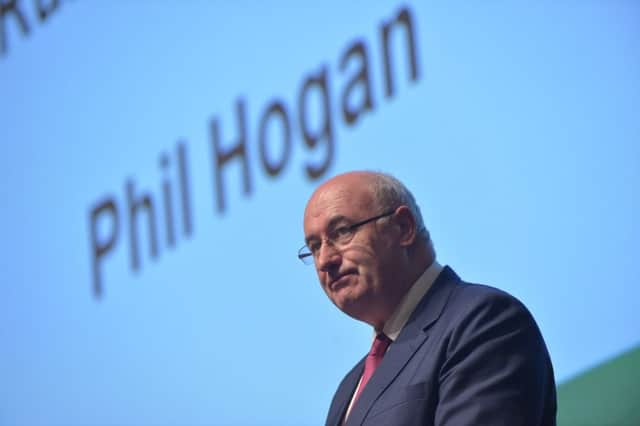Less red tape in future? Only time will tell


Indeed my betting would be that publication will become even more detailed and will include a measure of progress against green targets.
One thing the figures highlighted this week was the dependence of the farming economy on EU support. This applies right across the UK, but even more so in Northern Ireland. Support here is a bigger percentage of farm incomes and our per acre payments are far ahead of the UK average. Retaining this level of support under a new UK support regime after Brexit will be a major challenge. We are already fighting with the Scots over the allocation of the existing CAP pot, and with no political input from here our case at Westminster will be weak.
Advertisement
Advertisement
In the Life of Brian spin off from Monty Python one of the famous lines is ‘what did the Romans ever do for us – apart from giving us roads, education and baths’. Just because we are leaving the EU does not mean everything it does is wrong, particularly when it comes to agriculture. Time will tell whether the UK manages to produce a less bureaucratic farm support system. There is no question that the CAP we are leaving was wrapped in red tape that frustrated farmers. However it was UK officials that made this worse and they will be the people controlling a new policy.
Set that to one side, and there are plenty of examples of things the EU has done that have been good for agriculture. The fact that it has a commissioner solely responsible for agriculture and rural development is good. By contrast, at Westminster, the environment is what drives DEFRA and that will always be the case. The current EU farm commissioner, Phil Hogan, is coming to the end of his term. He has been good at the job and at the start promised to deliver a fairer food supply chain. He has done that.
EU-27 farmers will have protection against the major retailers far beyond the powers of the grocery code adjudicator in the UK. Hogan has also extended price transparency across most commodities, ensuring that more information is freely available. This reflects a belief that knowledge is the best way to ensure a competitive market – and that is the basis of a market that is fair and open. This week Hogan also confirmed that the future CAP will include compulsory aid for young farmers.
Out of the national envelope member states will have to spend at least two per cent on schemes for young farmers, against an average of 0.8 per cent now.
Advertisement
Advertisement
Examples cited by Hogan of possible support measures include top-ups of direct payments, installation aid, soft loans and partnerships with older farmers. These are all good ideas and they reflect a genuine determination in Brussels to tackle the demographic time-bomb of the average age of farmers being 55 plus. This is a good plan, but in all the discussions in the UK about the future of farm support there has been no mention of the need to do more for young farmers.
As things stand we have no idea what support will be in place for farming after Brexit. The commitment to maintain current levels will end if there is a general election, and that is a very real prospect if Brexit cannot be resolved by October. Here in Northern Ireland we need a system that will deliver at least £320 million a year in farm subsidies, just to stand still. That may equate, according to Boris Johnson in 2016, to less than one week’s payment to the EU, but that figure is now known to be false and every penny for agriculture will have to be squeezed from a reluctant UK Treasury.
EU-27 farmers, by contrast, now know that direct payments are safe until 2027, even if discussions continue over the detail. If UK politicians continue failing to even engage with the farming lobby we risk the biggest blow of all to Brexit. That would happen if people end up looking with envy towards the post-Brexit EU-27.